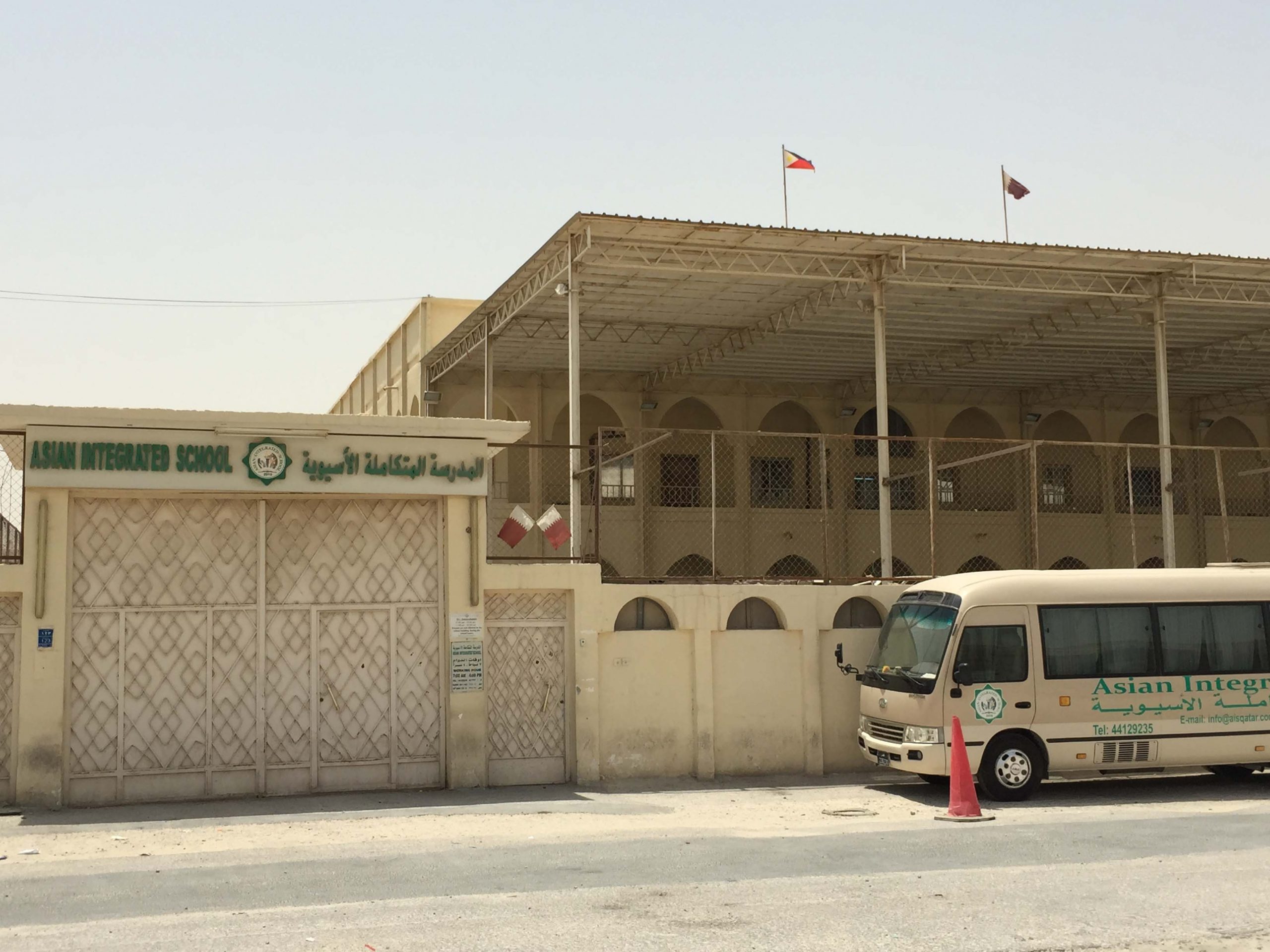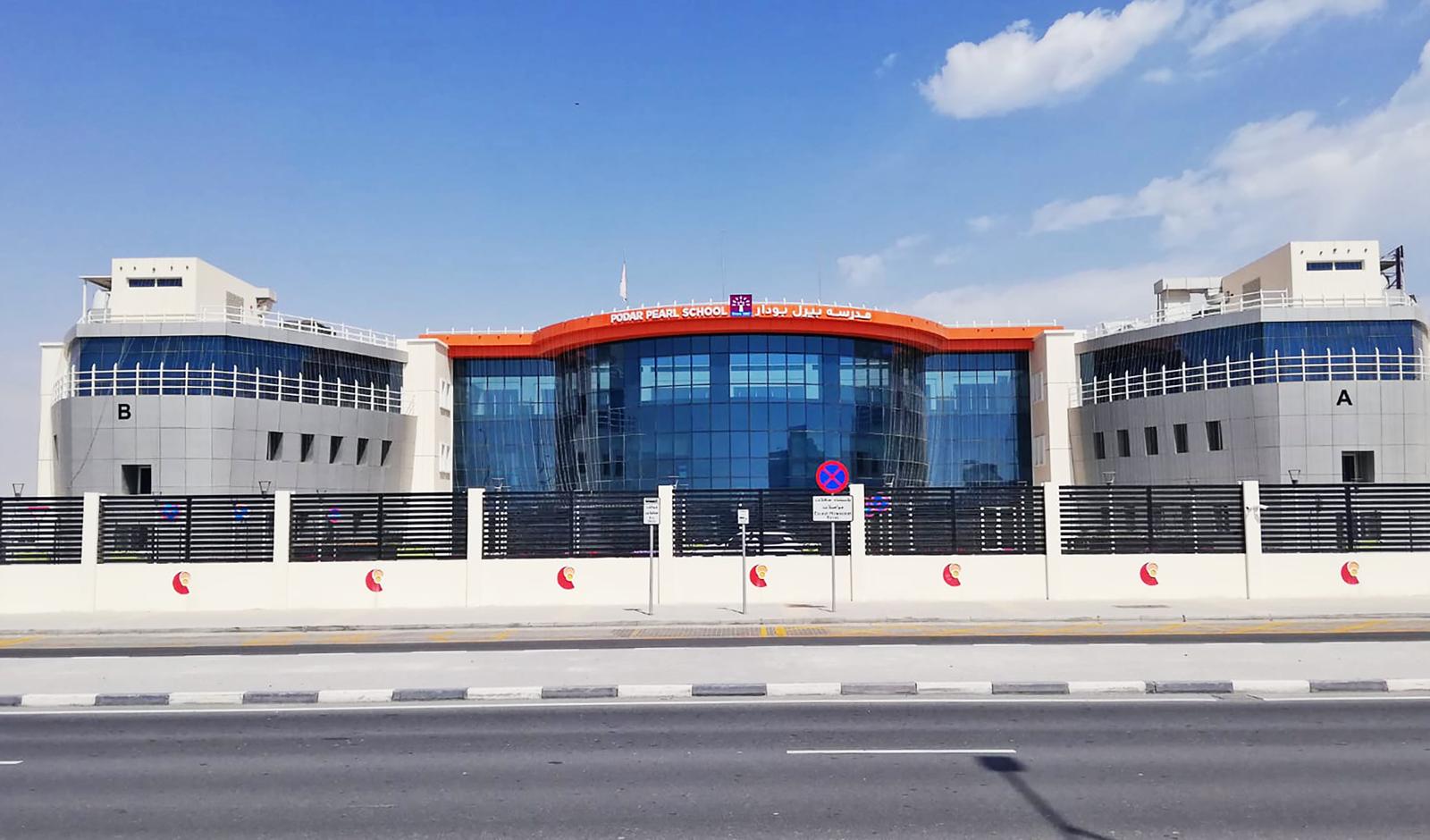
Parents of children attending a Philippine-curriculum school in Doha have spoken of their “desperate situation” after being told last week that the school is likely closing soon.
Last month, the Asian Integrated School (AIS) in Al Messila held a meeting for parents saying that the school would likely shut down at the end of the term in June. Officials also advised them to look for alternative schooling options for their children.
Some 506 students currently attend the school, 450 of which are Filipino. AIS has been operating since 2011 with kindergarten and primary-level classes.
The school had a three-year contract on its existing site on Al Jazeera Al Arabiya Street, which expired a year ago. It had been given an extension on the lease to remain open for an additional year while looking for another suitable campus.

However, petitions to relocate the campus to some 40 different locations were apparently rejected by the Supreme Education Council (SEC), the president of the Parent Teacher Association told Doha News.
Just last month, the school found a potentially suitable site in Duhail, planning to take over the facilities of the former site of the Shafallah Center for children with special needs.
Parents were initially relieved to hear that a site had been found, but the rent for the new campus is more than four times the school’s current rent – around QR400,000 a month, compared to QR88,000 at the Al Messila site.
To make up the shortfall, the school applied to the SEC for a 50 percent increase in its QR10,000-a-year fees, which was rejected.
Only then did the school inform parents that the move was contingent on getting approval for a fee increase, PTA President Joseph Rivera said.
Fees hike rejected
He added all parents were called into a meeting at the school a week ago, during which authorities told them that an application to raise fees had been denied and that, without the additional income, the school could not afford the new campus.
“The vast majority of parents had no idea that there was such a problem at the school. They thought it was just a case of finding a new location. Parents were angry at being told such important news so late,” Rivera said.
The school appealed the SEC’s decision, and a lobby group of around a dozen parents produced a petition with almost 200 signatures during a meeting with SEC officials last week.
However, the school’s appeal was rejected. Rivera said the parents were told by an SEC representative that the authority didn’t believe the school would lose money by moving site.
School advice
Since then, the school has issued a statement to all parents on its website, advising them to look for places elsewhere:
“As we are aware that the school has been toiling all efforts to secure a new campus since last year, we have been met with tremendous physical, logistical, and legal obstacles not withstanding financial consideration for both the school administration and the parents.
… We are left with no choice and of deep regret to advice all parents to start securing places for transfer of our students to other schools given our present circumstances which deems the school at this time as incapacitated to insure to continued operations beyond the current school year.”
Rivera said that parents are angry at not being told about the potential situation earlier in the school year, when registration for other schools were still open.

Those schools which do still have slots are considerably more expensive than AIS, he added.
“I am lucky, I have managed to get my two boys assessed for another school which has availability. But the fees are 150 percent of what we are currently paying. I might have to take out a loan to cover the extra costs,” Rivera said.
However, he added that other parents are not able to afford higher fees and are faced with the prospect of breaking up their families, sending their children back to the Philippines to be educated there.
“We are people of humble means. We cannot afford the expensive international schools. It is a desperately sad situation. Around 10 percent of parents will be forced to send their children back home to go to school. Their families will be separated. They feel helpless,” Rivera added.
Embassy help
He said that the Philippine Embassy has agreed to try to help parents find places in the two existing Philippine schools in Qatar, Philippine International School of Qatar and Philippine School Doha. However, the schools are already operating at capacity.
One option being explored by authorities is to run temporary afternoon classes at the schools for the extra children, Rivera said, though this has not been confirmed by the schools or the SEC.
The school did not respond to requests by Doha News for a comment.
This is the second school in Doha this year to have faced closure.

In February, parents of ACS Doha International School petitioned their landlord Ezdan Holdings and the SEC after they were told the school would close in June if they failed to renegotiate a lease.
However, the following month the school announced that it had signed a four-year deal with the landlord.
SEC rules
AIS’s imminent closure comes amid an ongoing crunch in private school places across Qatar. Additionally, the SEC has tightened some regulations on schools.
In January last year, the council ordered that there must be no more than 30 children in a class, prompting some schools, including the Philippine School Doha, to close their admissions for September 2014, saying that they had reached their capacity.

The SEC has also made it harder for schools to hike fees. Last fall, the authority confirmed that it had hired international consulting company PWC to review private school requests for fee increases, in response to parent’s complaints about rising tuition costs.
It also put in place a new five-point system for assessing schools’ application to raise fees. In 2013, the SEC refused all but a handful of school’s application to increase tuition costs.
Has your family been affected by AIS’s upcoming closure? Thoughts?







